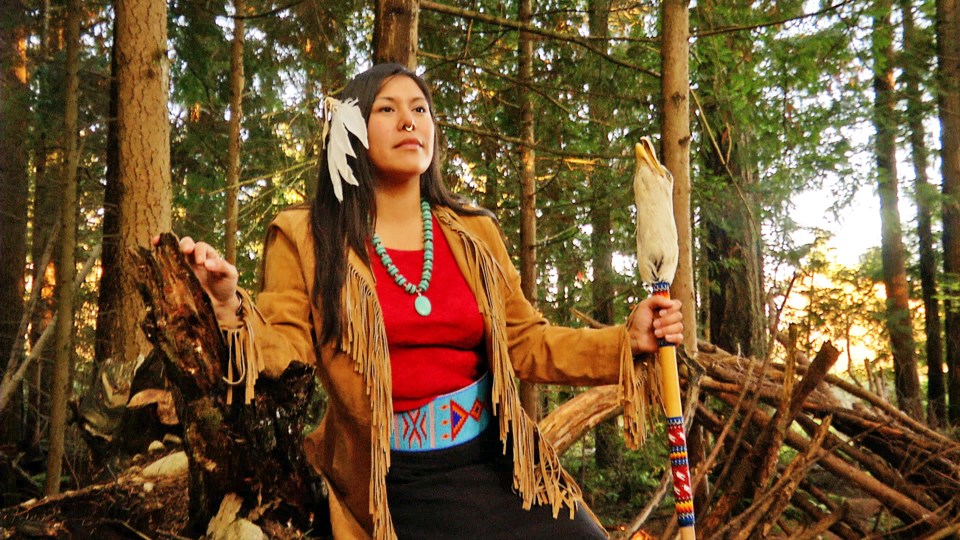Women make up half of the Earth’s human population, but that’s pretty much where gender equality begins and ends.
In countless fields, disparities between the genders abound – as it does, quite staggeringly, in showbiz.
According to a recent eye-popping statistic from the Motion Picture Association of America, women buy half of all movie tickets sold, but they’re not directing 50 per cent of films. Industry-wide, women constitute only four per cent of feature-film directors, 11 per cent of writers, and 13 per cent of editors – and this, despite the fact that movies with female protagonists make big bucks at the box office (Twilight, The Hunger Games, Maleficent, and, yes, even 50 Shades of Grey come to mind).
In Hollywood North, the gender gap begins at the funding level, according to Carolyn Combs, executive director of Women in Film and Television Vancouver (WIFTV).
“In 2013, Telefilm Canada funded 59 feature film projects, and of those 59 feature films, 82 per cent were directed by men, and 18 per cent were directed by women,” says Combs.
Which is bad, but what’s even worse is the way that the funding was distributed.
“94 per cent of the funding went to films directed by men, leaving six per cent of all Telefilm funding into feature films for projects directed by women,” says Combs, whose not-for-profit organization exists to support and encourage female filmmakers in a challenging industry.
According to Combs, Telefilm and similar funding bodies would probably argue that women simply aren’t applying for the funding, but “anecdotally, I know that that’s not true, because I do know women who are applying, and get rejected. So perhaps women are not applying in the same numbers, but why aren’t women applying? Once you’ve been rejected over and over again, you lose faith in the system.”
It was in this climate of wacky gender statistics that WIFTV held their first Women in Film Festival 10 years ago.
It began as a showcase for short films by BC’s women directors, but has expanded to screen feature-length documentaries and narrative works by local, national, and international filmmakers, as well as intense question and answer sessions, master classes, community panels, and an awards gala.
The industry-wide statistics are disheartening, but WIFF’s own numbers reveal audience and filmmaker interest. For this year’s fest, WIFTV received more than 500 submissions from all over the world.
Last year, audience attendance rose by 45 per cent.
“What I’m noticing here in Vancouver anyway, is women are getting together and forming a strong community to support each other in our filmmaking,” says Combs.
And while the line-up for this year’s WIFF (which kicks of this week and runs through the weekend) is jam-packed with shorts and features, there’s one glaring omission: Not one single feature-length narrative film from a BC-based director.
“You need money to put together a feature film,” says Combs. “We have lots of shorts this year from BC women. There’s no lack of talent. I think it’s just a lack of financing.”
One feature that would have qualified – Ana Valine’s award-winning Sitting on the Edge of Marlene – couldn’t be screened in the festival because it has a distributor (and it wrapped its Vancouver theatrical run earlier this week).
Regardless, Combs is excited for this milestone WIFF.
“What you see in all of the films are strong women characters, strong leads who are taking agency in their lives to create positive change, either for themselves or their families or their communities,” says Combs.
WIFF kicks off with Margarita, with a Straw, an uplifting coming-of-age feature from Indian filmmaker Shonali Bose.
Other features include Lady Be Good (USA); A 5-Star (Iran); Behind Closed Doors from France (“The female character in that goes through quite a transformative experience. If I tell you what it is, then I’ll give the film away”); The Lesson from Bulgaria (“The main character’s idea of what’s right and wrong changes throughout the film”); Seguir Viviendo (Mexico); Highway of Tears (Canada); and Relative Happiness (Canada).
Shorts from local filmmakers include Pauline Egan’s Through the Pane, Bedbugs: A Musical Love Story, Mattress, Freedom Babies, My Favourite Leg, In the Deep, The Goodbye Girl, Happy and Gay, and Chanterelle Rain.
“There isn’t a ‘women’s film,’ or a women’s theme,” says Combs. “Women just make great films, and we need to be more supportive of our BC women filmmakers.”
And new for 2015: no need to chug your wine in the lobby moments before a screening is about to start. You can now bring wine (and popcorn) right into the theatre with you.
• WIFF runs until March 8 at VIFF’s Vancity Theatre (1181 Seymour). More at WomenInFilm.ca.


